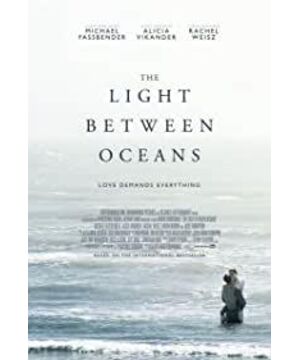Obsession, originating from desire, and eventually becoming desire, is the source of sin and the beginning of mistakes.
If it weren't for the fact that two consecutive miscarriages had made Isabel's desire for children to the point of paranoia, she would not have forced her husband to violate the lighthouse keeper's pact, hide the situation without reporting it, and take the children of those who died at sea for himself. If you can't get it, it makes you crazy. The so-called "lucky for me, but not for my life" is too difficult to achieve.
As a movie-watcher, I can of course blame Isabel for the immorality of depriving others of their children. But in fact, when you are deeply involved, how can it be so easy to let go? How can there be such a clear mind to distinguish right from wrong?
If there is no desire, it is rigid, and it is not controlled by desire, and it is the means of the strong to be able to avoid harm. And the weak are defeated without a fight in the game of desire, and are enslaved by them. Either perish on the way of chasing, or enjoy short-term happiness after the desire is satisfied, and then swallow the bitter fruit in the rest of life. Isabel got his wish, temporarily had a child, and lived happily for four years. But after awakening her conscience, when everyone returned to their original positions, her conscience has been tormented. It's not that God doesn't forgive her, it's that she can't pass her own test.
We will also have obsessions with things big or small, and the obsessions will eventually deepen into desires. The psychology of longing for something makes us "unscrupulous" to some extent, and may have also committed "immoral" behaviors. . It's just that for Isabel, this obsession, this desire is a child; the color of "mother's love" makes this immoral "unscrupulous" fade away, and at the same time it becomes more complicated because of human relations.
View more about The Light Between Oceans reviews











